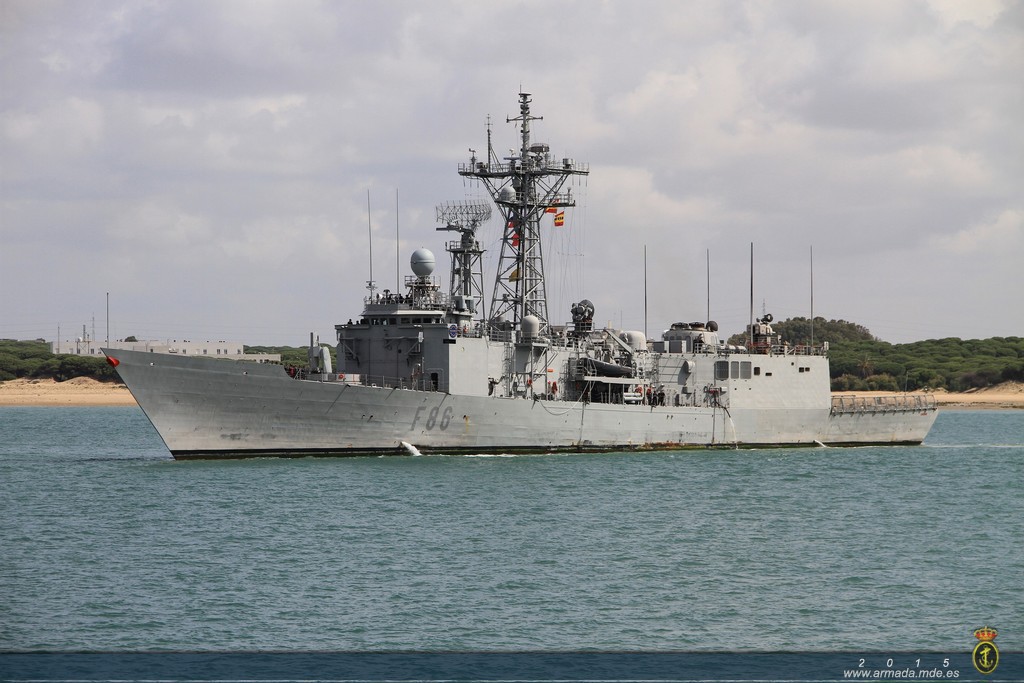The Spanish Navy frigate ‘Canarias’, deployed on the European Union mission EUNAVFOR MED SOPHIA, took part on Friday night and the early hours of Saturday in the mass rescue of more than 600 people in Mediterranean waters off the coast of Libya.
The rescue operation unfolded without incident despite the large number of migrants and the serious difficulties due to the total darkness in which the Spanish vessel had to operate.
In total, the frigate ‘Canarias’ rescued 651 people from several Sub-Saharan countries.
During daylight, the F-86 frigate proceeded to sweep the zone but found no more vessels in danger, and headed off towards Italy to help offload the rescued migrants, almost certainly the following day, at an as yet undetermined port.
Migrants on another 30 vessels were also rescued by other lifeboats that had set off from the coast of Libya.
The vessel ‘Canarias’, which was on patrol in the area, was deployed to the zone to carry out a final rescue operation, since the other rescue vessels that had previously gone to the zone had no further space.
The F-86 joined the operation at around 10 pm, and took charge of the actions. The frigate carried out six further rescue operations.
The frigate ‘Canarias’ has been deployed under Operation EUNAVFOR MED SOPHIA since 24 January, when it took over from its sister ship, ‘Navarra’.
Following the operation carried out on Friday/Saturday, 1,958 migrants have now been rescued by the vessel in the last three and a half months since it joined the mission. It has also handed over three traffickers to the Italian judicial authorities during that time.
The goal of the ‘Canarias’ in Operation SOPHIA is to disrupt the illegal people trafficking networks operating in the Central Mediterranean by intercepting those vessels trafficking migrants.
Although the rescue operations are not included in the terms of the EU mission, international maritime law obliges all vessels to aid other vessels and people in risk situations at sea.





